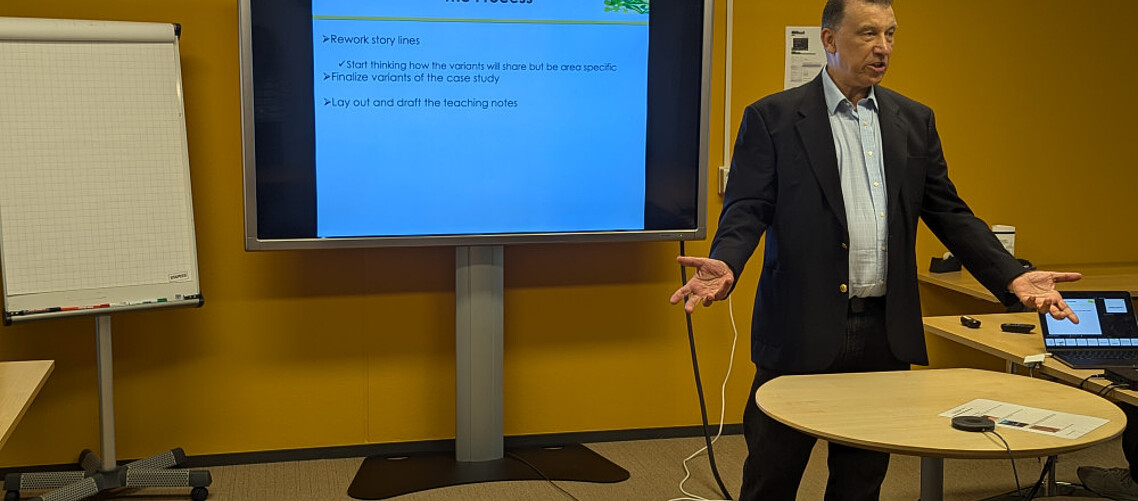Crafting a Compelling Narrative Across Disciplines
Dr. Brown began by discussing the creative process behind the Unilever Lipton case. He stressed that case writing goes beyond crafting a compelling narrative; it involves incorporating specific elements and decision-making pathways for students to critically analyze and reflect on. As Dr. Brown realized the case touched on multiple disciplines like marketing, operations, and strategy, he adapted it into a multi-storyline format, ensuring that students from various fields could engage with the content and educators across different disciplines could make use of this comprehensive material.
Validating The Story Line
Dr. Brown is the protagonist in the case, drawing from his experience working at Unilever during that time. While his insider knowledge provides unparalleled insights for telling the story, he also needed hard, verifiable data for academic purposes. He turned to public sources like annual reports to validate his story line, ensuring it was legally sound. As the protagonist, he could still describe strategic decisions from his own experience without breaching copyright. This balance ensured the case was both credible and engaging for students.
Collaboration in Case Writing
The session also explored best practices for collaborative case writing. Dr. Brown highlighted the importance of an in-depth outline for the co-writers to align their thoughts and structure. After gathering all the necessary data, Dr. Brown and his co-writer engaged in a process of overwriting the original 15-page document. This allowed them to adapt the base story into three distinct storylines, each focusing on specific areas of the case: marketing, strategy, and operations.
The Role of Teaching Materials and Notes
Dr. Brown underscored the critical role of comprehensive teaching materials and notes in the effective delivery of cases. These materials help educators guide students through the complexities of multi-storyline cases, offering structured support for discussion and analysis. He stressed the importance of creating teaching notes that complement the case's narrative and provide clear guidance for instructors. In his view, teaching notes should provide a framework that offers instructors a solid foundation while allowing enough flexibility to adapt to their own teaching needs and styles.
Conclusion
The seminar offered attendees a detailed look into the multi-layered process of developing cases that cater to various academic disciplines. Dr. Brown's insights into the development of the Unilever Lipton case serve as a valuable resource for case writers aiming to create complex, multifaceted learning experiences. We thank all participants for their contributions and look forward to the next Brown Bag seminar.
The seminar is part of our quarterly Brown Bag Seminars on Creating Memorable Cases. Join the RSM Case Community to stay updated on future seminars.
